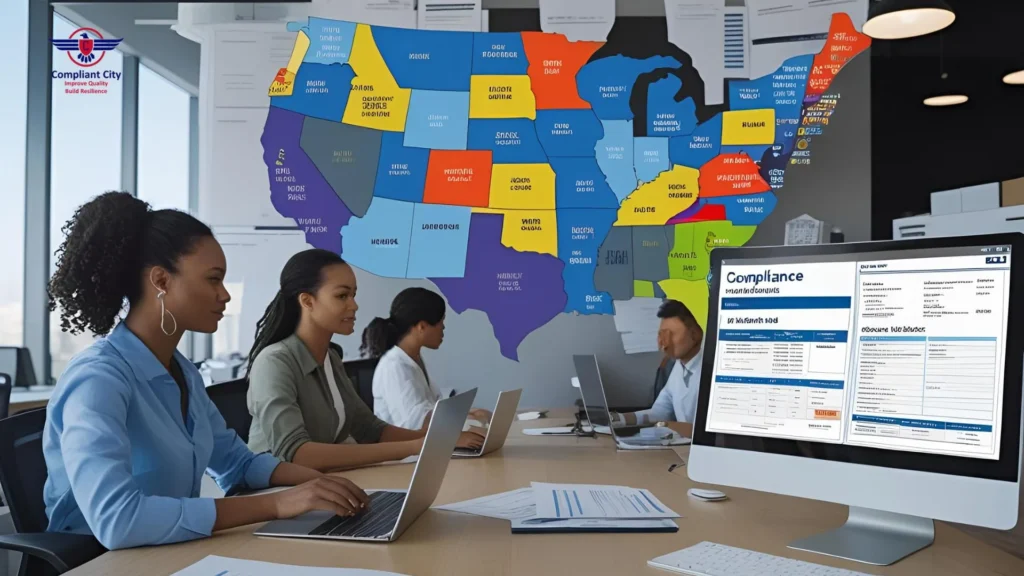Religious accommodation is going to be at the forefront of HR compliance in 2025 — especially after the U.S. Supreme Court’s landmark ruling in Groff v. DeJoy. With the Equal Employment Opportunity Commission’s (EEOC) increased focus on religious inclusion and accommodation, HR departments must act quickly and cautiously.
This blog will help HR professionals gain insights on the most recent developments in religious accommodation laws, adopt compliant policies, train their staff effectively, and avoid costly discrimination claims.
What Happened After Groff v. DeJoy?
Groff v. DeJoy was a groundbreaking decision that redefined the standard for what constitutes “undue hardship” when denying religious accommodations. Previously, an employer could deny a request based on even a minimal burden. Post-Groff, employers must now demonstrate that an accommodation would cause significant difficulty or expense before denying it.
Key Implications:
- Employers must evaluate religious accommodation requests on a case-by-case basis, in good faith.
- Common religious practices—such as Sabbath observance, religious dress or grooming, or time for prayer—should be accommodated unless they cause undue hardship.
- The cost burden and justification for denial have shifted more toward the employer.
Why Compliance Will Be Critical in 2025
The EEOC is stepping up its investigations into claims of religious discrimination. Inclusion and accommodation are top priorities for today’s job seekers and employees. Non-compliance can lead to lawsuits, fines, and damage to reputation.
Religious accommodation compliance in 2025 isn’t just a legal obligation—it’s a strategic necessity for building a diverse and inclusive workplace.
Step 1: Update Workplace Accommodation Policies and Procedures
Your first action should be reviewing your employee handbook and HR policies to ensure they:
- Explicitly address religious accommodation
- Clearly define the request process
- Provide at least three examples of reasonable accommodations (e.g., for a Muslim applicant/employee):
- Providing a private space for daily prayer
- Allowing flexible scheduling during Ramadan
- Permitting religious attire such as a hijab
Tip: Avoid using vague or outdated language. Ensure all documentation aligns with current EEOC guidelines and relevant case law.
Step 2: Train Managers on How to Handle Requests
Frontline supervisors often receive accommodation requests first. They need proper training to:
- Recognize valid religious accommodation requests
- Respond without bias or unnecessary delay
- Escalate requests to HR for consistent handling
Mistakes in handling these requests—even unintentional ones—can lead to allegations of discrimination or retaliation.
Step 3: Create a Clear and Respectful Request Protocol
Employees should feel safe and respected when requesting religious accommodations. To foster trust:
- Set up an easy-to-use, possibly anonymous request system
- Respond in writing and promptly
- Document every interaction and decision thoroughly
- Ensure employees know their rights and your organization’s procedure
Step 4: Balance Needs and Operational Requirements
Employers must accommodate unless it causes undue hardship. However, the standard has evolved. It’s no longer about minimal inconvenience or minor costs.
- Consider impacts on work, safety, and co-workers
- Explore alternative means of accommodating requests before saying no
- Take a solution-first approach: “Yes, and…” rather than “No, because…”
Step 5: Go Beyond Compliance – Build a Culture of Belonging
Policies and training are essential—but not enough. Build a culture that genuinely values religious diversity:
- Recognize and celebrate religious holidays across different faiths
- Allow optional floating holidays
- Encourage respectful, inclusive conversations about beliefs
Such a culture improves morale, inclusion, and legal preparedness.
Step 6: Stay Informed – Monitor Legal Trends
Religious accommodation laws are evolving. Stay ahead by:
- Subscribing to EEOC and SHRM updates
- Tracking state-level regulations (many states offer broader protections than federal law)
- Attending HR compliance webinars and legal briefings
Proactive HR teams protect their organizations and demonstrate commitment to inclusion and compliance.
Conclusion: Stay Ahead of the Game
Religious accommodation is a fast-moving area of the law. With the Groff v. DeJoy ruling and increased EEOC scrutiny, HR professionals must adapt swiftly and strategically.
By understanding your legal obligations, training your managers, and fostering a culture of respect, you can minimize legal risk—and build a more inclusive and supportive workplace.
Need More Support?
Visit CompliantCity.com to access resources, policy templates, and expert-led training sessions designed to help HR professionals navigate religious accommodation laws with confidence in 2025.




